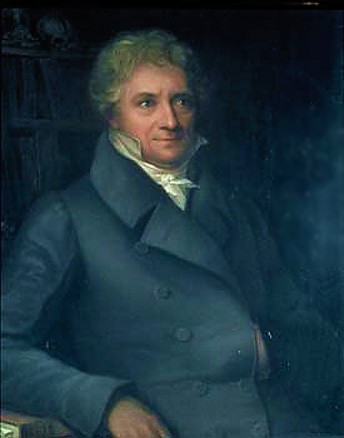Lessico
Ignaz Döllinger

Anatomista e fisiologo tedesco (Bamberga, Baviera 1770 - Monaco di Baviera 1841). Compě ricerche di anatomia comparata, interessandosi soprattutto allo sviluppo degli organismi, e fu tra i promotori degli studi di embriologia. Professore successivamente a Bamberga (1794), Würzburg (1803), Landshut (1823), Monaco (1826). Tra i suoi scritti: Beitrag zur Entwicklungsgeschichte des menschlichen Gehirns (1814).
Anello di Döllinger: formazione anatomica circolare, elastica, presente nell'occhio, corrispondente al margine della cornea, formato da un ispessimento della membrana di Descemet (Jean Descemet - chirurgo francese - Parigi 1732-Saint-Denis 1810).
Ignaz Döllinger (27 May 1770 – 14 January 1841) was a German doctor, anatomist and physiologist and one of the first professors to understand and treat medicine as a natural science. Ignaz Döllinger was born in 1770 in Bamberg, Bavaria, where his father was a professor at the university and physician to the Prince-Bishop.
He commenced his studies in his native town (where he took a doctorate in 1794), continuing them in Würzburg, Pavia and Vienna before returning to Bamberg. Soon after gaining his doctorate in 1794, he became professor for physiology and general pathology in Bamberg, but was called to a professorship of anatomy and physiology in Würzburg in 1803.
In 1823
he moved to Munich (to the Academy, as the University was still in Landshut at
this time). When the University finally moved to the capital, he transferred
there. His best known students were Louis Agassiz, Karl Ernst von Baer, Lucas
Schönlein, Christian Heinrich Pander![]() and
Lorenz Oken. Döllinger's importance comes from his contributions to the
understanding of human development and comparative anatomy, based on his
knowledge in all areas of morphology and physiology.
and
Lorenz Oken. Döllinger's importance comes from his contributions to the
understanding of human development and comparative anatomy, based on his
knowledge in all areas of morphology and physiology.
He was one of the first workers to perceive and treat medicine as a natural science – his work on the circulation of blood, secretory processes and the first stages of embryological development are exemplary here. At the same time, he was aware that simply collecting scientific facts was just as ineffective as pure speculation, and it was because of this attitude that he is considered a natural philosopher, although he never argued in favour of any extreme point of view. He died in Munich.